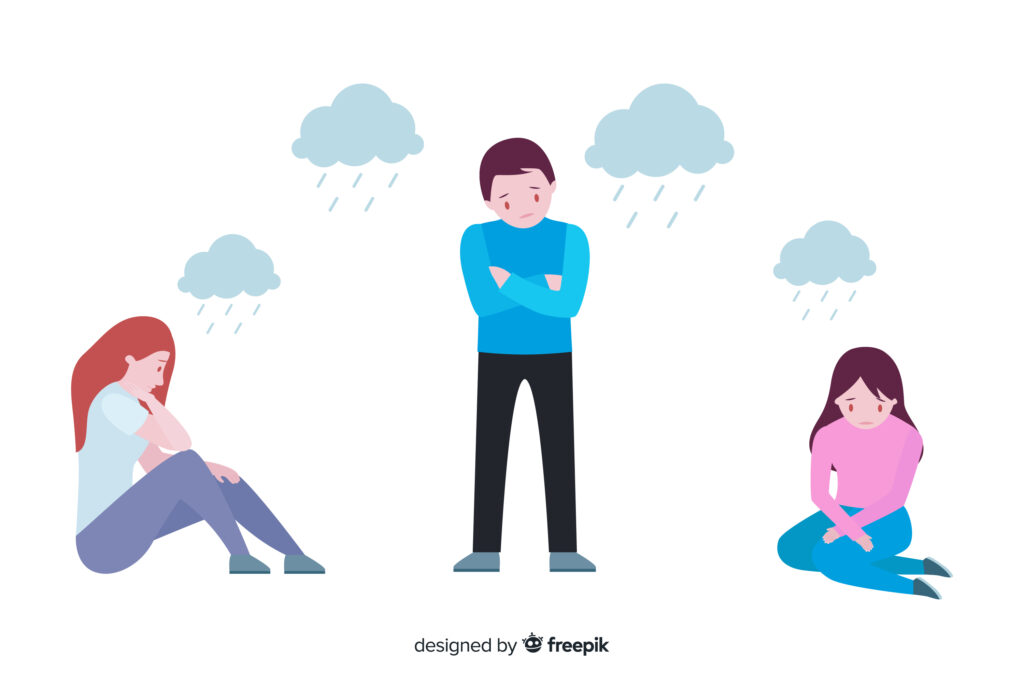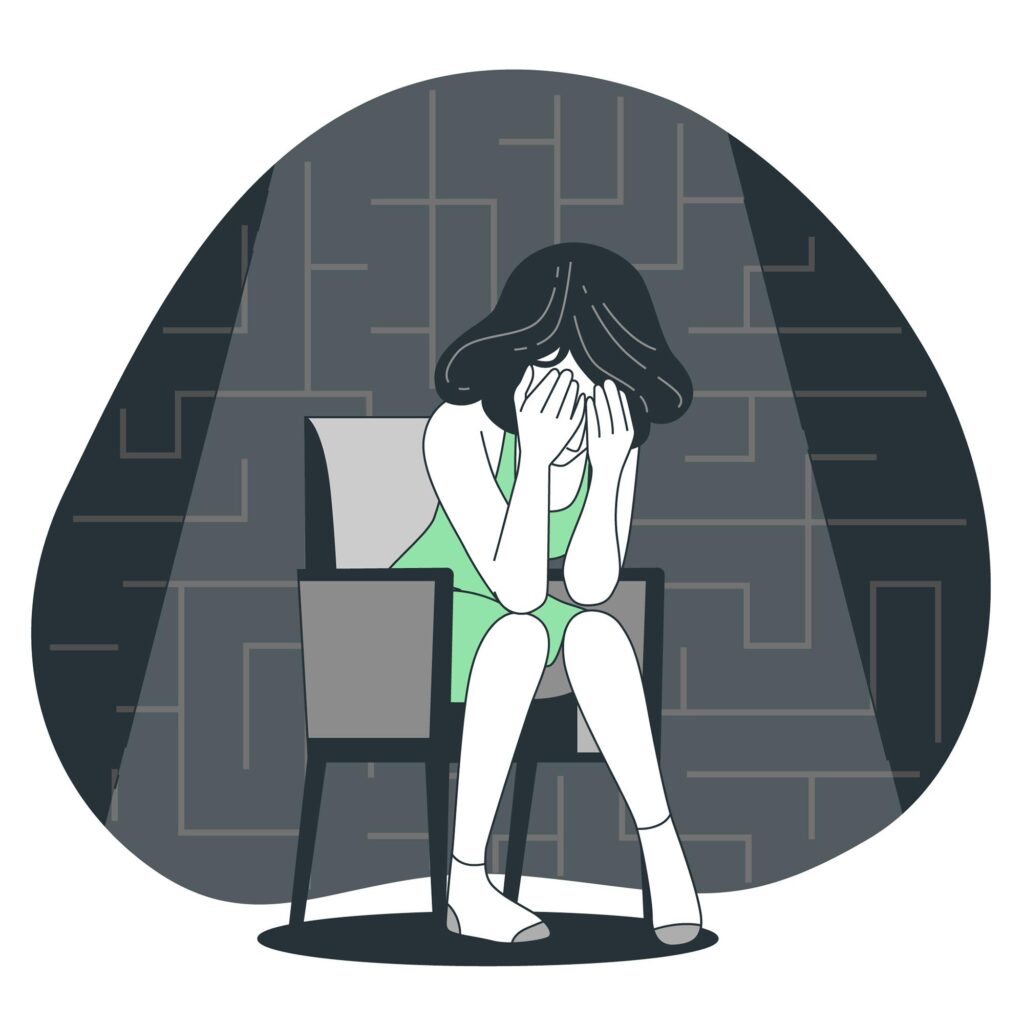Part I
Grieving the loss of loved ones:
Grief is a natural emotional response when you lose someone or something (particularly when it is an irreversible loss). You may sometimes have overwhelming pain. You may experience shock, anger, frustration, guilt, embarrassment, numbness, remorse, blank, disbelief, and desperate. It may alter your day-to-day routine and may impair your physical health.

The process of grieving is not just grieving for the one who has departed, but it is eventually letting go of the past, which is said easier than done, and is painful and long.
You may have a very disturbing experience where you feel that you deeply miss the loved one, you may have a sense of emptiness and sometimes a “sense of don’t exist.” This process takes its own time in its own way; some may take 3 months to 1 year and it is normal until 3 years. Also, the grieving process depends upon the level of dependency on the departed loved ones. You may find it difficult to adjust to new reality of living in their absence. Also, others not understanding the intensity of your pain makes this process more tedious.
When you lose someone important in your life, it’s okay to feel how you feel. No one in this world can escape and it is something that virtually everyone may go through at some point in their life; it is an inevitable part of life.
During this process, you may be in and out of loss-oriented activities (denial, crying, anger, dejection, longing etc) and restoration-oriented activities (accustoming new role, handling changes in your routine, finding new ways to connect with friends and family and developing a new path of life).
When you grieve someone’s loss, you go through various stages (Part II).
Part II
When you grieve, you may have a thought that ‘it is a loss of what never was and now never can be’. The grieving process follows through certain stages and these stages can overlap.

Denial
You unconsciously wish that something not be so and unconsciously defend against re-experiencing the pain of loss. You can overcome this stage once you realize that you have indeed experienced a loss. When you move from denial, you may often experience an intense pain, you may feel rage or anger towards others and yourselves for loss that is irreversible.
Anger
Anger can be because of wanting something to change and you can be very angry about it.
Bargaining
You bargain at an unconscious level as an effort to avoid the complete acceptance of the loss, and you may have an associated despair along with this.
Despair
You may have an extremely painful and disturbing experience at this stage that may significantly worse, but it is a part of normal grieving process. You may have a full acceptance of the loss when you feel and work through the pain, and finally mourn the loss of relationship.
Acceptance
You may accept the loss finally, and this does not mean that you become OK with what has happened in the past, or that with acceptance you get inner peace or happiness. It means that your energy that was locked up in the blocked grieving is finally freed up.
You may not move through all the stages; you may move through some, but not others.
Your experience during the process of grieving:
- Your pain may not go away if you ignore it and doing so may make things worse in the long run. So, you will have to face the pain to eventually find a way to come to terms with the loss. It is widely said that “the only cure for grief is to grieve.” You will have to allow yourself to feel.
- Sometimes a reminder such as music, photo or simple memory may provoke painful emotions again, and being prepared for such painful reminders may be helpful.
- You may need to discover a path to forge ahead with your life and it doesn’t mean that you are forgetting your loved one. Many carry losses with them throughout life and it becomes a part of life. In due course, your pain gradually becomes easier to bear, but the love you had for the loved one will remain always.
If your pain is so severe and constant and if it keeps you from resuming your life, you may be suffering from complicated grief (intense state of mourning where you might be so preoccupied with the departed one, disrupting your personal, social and occupational life).
PART III
Suicidal ideations during the grieving process:

Suicidal thoughts may suggest that you are in depression.
You may feel like, life isn’t worth living; you may wish you had died with your loved one; you may blame yourself, become numb and disconnected, and may have difficulty trusting others. It is imperative to note that how much ever pain you are experiencing, you are not alone. We all might have had such thoughts at some point in our lives. Such a feeling does not mean that you are weak or crazy, but it is essential to opt for professional help in such a situation to overcome pain and suicidal thoughts.
To simplify,
Important points to ease the grieving process,
- To accept reality of loss of loved ones
- To deal with the pain of grief
- To adapt to life without the departed
- To manage a connection to the departed while moving on with life
How can you deal with it effectively?

1. One question to ask yourself – How would the departed loved one feel when they see your present state of life?
2. Writing a letter to the departed saying goodbye (goodbye means let God be with you) helps to let go of the past.
3. Self-care like managing stress, spending time in nature, with pets etc, pursuing your interests, eating and sleeping well helps to cope with the pain.
3. Affirmations for your being may help
- I have a right to exist
- I am wanted and loved
- I am safe
- I am happy that I am born
- I can take care of myself
- I can live with joy
4. Hobbies and recreational activities
5. Develop a new daily routine
6. Rethink plans for future
7. Seeking support from friends and family, sharing with non-judgmental listeners, joining bereavement support groups, talking to a counsellor.
During the above process, you may adopt a new sense of identity.
Take care and be well!

